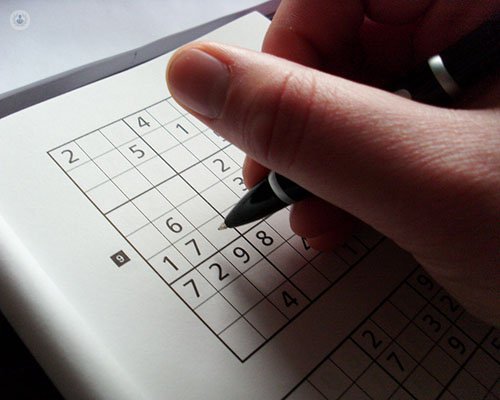Is the memory aging?
Written by:Memory is the ability to store and retrieve information, essential power for people to adapt to the environment. Responds to multiple brain processes that shape various types of "memory" and provide as fascinating as that of knowing who we abilities.
To what age you can remember?
Each type and memory system has its maturational times. Some start working even before birth. Babies and children learn lots of things in a very short time. For example, they learn who their parents are, talking, walking, dressing or cycling. All these things we learn would be useless if we could not remember. Without memory we should respond to each situation as if we had never lived. Without it we could not recognize our loved ones are or where we live, not get a sweater, because we would not know what it is, or what it does or how it gets. However, when one asked about his first memory I not usually find him before the three years. That is what is called infantile amnesia. In general, systematic studies of autobiographical memory, which refers to memories about ourselves and our relationships with the world, show lack of memories prior to age 11.
¿Grow old memory?
Over time, the body ages and the brain is no exception. There morphological and neuroanatomical changes that make some of the memory systems may not work as effectively. However, there are some types of memory that are more affected than others by aging; for example semantic memory (memory of meanings and knowledge not related to a particular experience) can increase with age.
When there is a progressive loss of memory, it should be consulted neurologist , who indicate a cognitive examination to clarify the diagnosis, assess the degree of involvement and design a cognitive rehabilitation if necessary.
Working memory
There are techniques that can contribute to more effective memory. Mnemonics is the term that encompasses all techniques pursuing increased memory performance. These techniques require effort and perseverance to learn and master. Although, as discussed above, the memory is the result of multiple processes that result in multiple types of memory. The practical implication of this consideration is that when a person asks what you can do to improve your memory, can not expect a useful answer until you ask your question in a more specific way. What kind of material you want to remember? How? Under what circumstances? During how much time?

The best way to cherish the memory is an active and exciting lifestyle that includes new challenges: learning a language, playing an instrument, play games or intellectual activities (chess, puzzles, crosswords, sudoku, letters, reading, etc ...); relate socially, but also physical exercise, Mediterranean diet, sleep well and avoid stress.
People who take care of their health throughout their lives have what is called greater "cognitive reserve" that allows them to better withstand diseases of the brain, but also will involve other factors such as genetic.
Excess memory
There are few people in the world who have a rare disorder called "hypermnesia". The term "hypermnesia" comes from Greek and its literal translation is "excess of memory" (Hiper: excess - Mnesia: memory). Probably the most famous case is collected in Small book of a great memory written by the eminent neuropsychologist AR Luria, where it counts and analyzes the case of a Russian reporter who could remember endless numbers or lines of poetry at a glance, and remember all with equal accuracy and precision past few years. This power was a problem for the reporter, since often cost him vacating his mind trivial information and could not focus on the relevant information. Luria has, for example, that his patient often found it hard to follow a conversation, since each word evoked a particular episode that had taken place in the past. Forgetting plays an important role, to forget what does not matter can help us remember what it does.
Amnesia: memory loss
Amnesia is the generic name given to memory loss not attributable to normal forgetting process.
It can be divided into:
• Retrograde Amnesia: The inability to evoke knowledge that has been acquired before a brain injury.
• anterograde amnesia: It is the inability to acquire new learning after brain injury.
However, there are almost as many types of amnesia and memory types, because normally some system memory and not all at once is altered.
There are many causes that can cause amnesia. The most common are brain diseases, either degenerative or focal lesion; vascular diseases; tumor diseases; head trauma; or situations of intense stress.
Can one fully recover from all types of amnesia? Not always. While there are professionals, neuropsychologists, which can help optimize the operation of the memory capacity, the degree of recovery will depend among other things on the severity of the injury, the affected memory type or age.
Edited by Noelia García Pino


